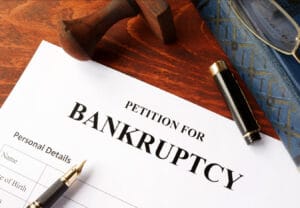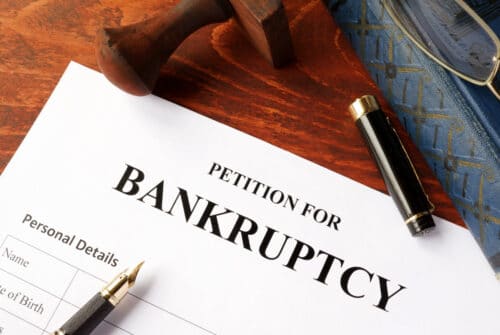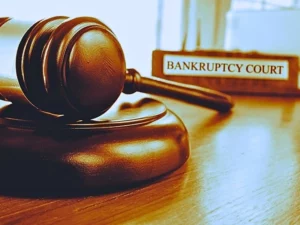
How Much Debt Do You Need to File Bankruptcy in Nevada?
There is not a minimum amount of debts needed to file for bankruptcy in Nevada. Debtors who otherwise qualify for a chapter 7 or chapter 13 bankruptcy have the ability to file with any amount of secured or unsecured debts. The bigger question for potential filers to ask themselves is what type of bankruptcy they need to file so that the bankruptcy will benefit them the most if they decide to file at all. For private individual debts, chapters 7 and 13 focus on different types of debt and are completed under two timelines.

What Are the Differences Between Chapter 7 and Chapter 13 Bankruptcy?
The biggest difference between chapter 7 and 13 bankruptcy is that chapter 7 is usually filed when the filer has no major assets and mostly has only unsecured debts such as credit cards or medical debt. Chapter 13 is filed when the filer needs a chance to catch up on payments for a house or car, which is considered secure debt, as well as any unsecured debts he or she may possess. Most individuals filing a Chapter 7 bankruptcy have no assets to be dissolved and paid to creditors, so the process typically takes under a year. Chapter 13 bankruptcy, on the other hand, lasts for three to five years, allowing the filer to continue to make any payments he or she needs to make to keep his or her house or car. Although there is no minimum amount of debt that a filer has to owe to file, there is a debt ceiling under Chapter 13 for the amount of both secure and unsecured debt that a filer can have to still be eligible for a discharge. If this occurs, the filer may be able to file instead for a Chapter 7. The amount set for both kinds of debts is adjusted every three years. If a filer finds that he or she owes too much debt after already filing a Chapter 13, he or she can try to file a motion to convert to a Chapter 7.
Why Is It Important to Pick the Correct Chapter?
When potential filers make the decision to file for bankruptcy, it’s important for them to know what major debts they owe, as well as potential assets they possess. Whether they have a job or not also comes into consideration when filing. Because chapter 7 takes so much less time, it might seem like the easier way to get rid of debt. However, chapter 7 also has to be approved by the court based on the filer’s assets and potential to pay back any debts. Filers will have to prove that they are earning the average income for their area. A trustee is also appointed to liquidate assets the filer may own for creditors to get part of the money owed to them if they file a proof of claim to the court for it. Chapter 7 may be best for someone who does not have a job or way to pay back any debts they may owe, even if this is not what seems to be a large amount.
What Are the Requirements to File for Bankruptcy?
Once potential filers decide which chapter of bankruptcy will be best for them, they should make sure they fit all the requirements for their local court before filing, or the court may decide the filer’s bankruptcy should not be completed. Some requirements filers may need to meet are:
- Payment of Filing fees when filing the Petition, as well as other documents that may have fees attached, should be made. Filers should be sure to make payments in the correct form, as cash is not accepted.
- Filers must complete and obtain a Certificate of Completion of an approved credit counseling provider, so this can be filed with the Petition.
- Filers must provide their monthly income statements within fourteen days of filing their petition for bankruptcy.
- Filers should provide a copy of their most recent Tax Return.
- Filers must have copies of all the correct forms, which can be found online, for the chapter of Bankruptcy that will be filed.
These are just some of the requirements that the Bankruptcy courts have for filing. It is important for filers to know that if they have previously filed for bankruptcy and received a discharge, they may not be eligible for another one within a certain time frame from the previous filing.
Will All Debts Be Discharged by Filing for Bankruptcy?
When a potential filer is thinking about filing for bankruptcy, one of the questions he or she needs to ask prior to filing is if all of his or her debts be discharged. A discharge releases the filer from the obligation of having to pay those debts back and does not allow creditors to legally continue to collect that debt. But not all debts are eligible for a discharge during a bankruptcy, the types that cannot be gotten rid of by completing a bankruptcy are considered non-dischargeable debt. Non-dischargeable debt includes:
- Alimony or child support orders.
- Back child support that is owed.
- Court fines and fees for criminal charges.
- Student loans at both the state and federal levels.
- Tax debts.
These are only some of the debts that cannot be taken care of by completing a bankruptcy. If a potential filer is unsure if any of the debts that he or she is responsible for falls under this category, he or she should reach out to a Nevada bankruptcy lawyer.
What Happens if the Filer Fails to Complete Bankruptcy Steps as Outlined by the Court?
During a bankruptcy, no debts can be actively collected by the creditors, even if they will not be discharged. This allows filers to make voluntary payments or by discharging eligible debt allow themselves to be able to pay off any remaining ones. However, once the bankruptcy has been completed or dismissed, then creditors can begin to try to collect upon any remaining debts that are owed. Any bankruptcy can be dismissed if the filer fails to follow any of the guidelines or courses that the court outlines. Also, if the filer fails to provide or file any additional financial papers that are requested. A dismissal can also be ordered by the court if filing fees are failed to be paid, or if any payments are missed during Chapter 13. If a dismissal is ordered by the court, then the automatic stay is lifted and the filer continues to have the legal obligation to pay his or her debts unless a motion to reinstate is filed, so the bankruptcy may be resumed.
Why Should a Potential Filer Take All These Considerations?
It is important for filers to take careful consideration of all of these facts to see if it will be beneficial to file for bankruptcy. Filing and undergoing the process is expensive, as the filer will have to pay for all court filing fees, attorney fees, and any financial courses he or she is required to complete. If the filer has a previous bankruptcy history, he or she may not be eligible for a discharge, depending on when he or she last filed as well as which chapter was filed. If a filer has already filed for bankruptcy and was found ineligible for a discharge, then the bankruptcy will be closed, and any debt will still be owed. Undergoing bankruptcy is a good way for filers to take care of debt, as long as they understand how to navigate these rules and requirements. A bankruptcy attorney can help the filer choose the chapter that allows him or her to discharge all eligible debt and avoid a dismissal.





